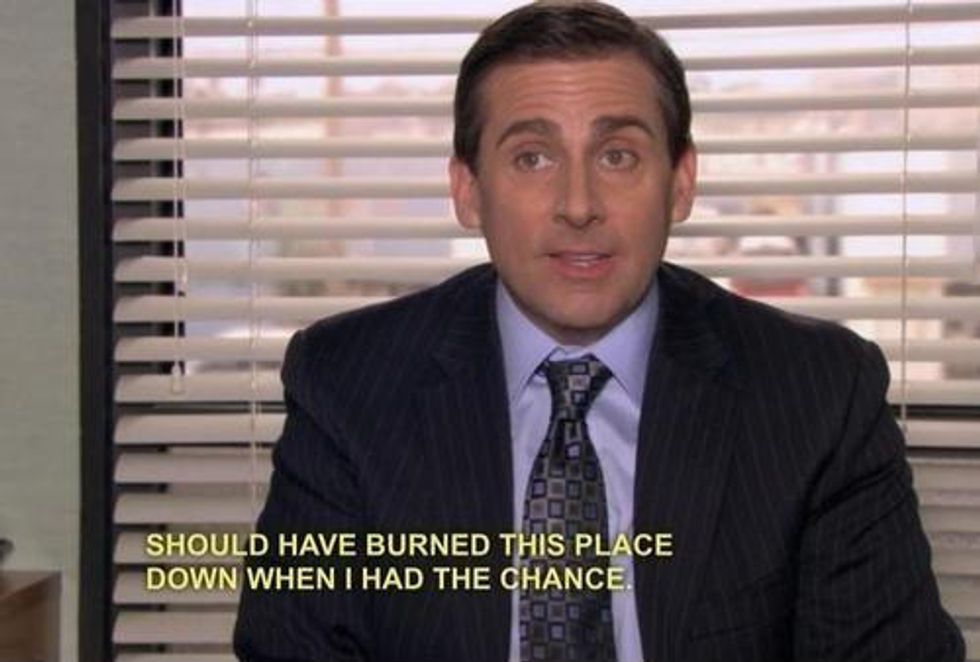It all goes back to 1957, Eisenhower's Atoms for Peace Program (LOL for the name). With this project, Iran established Tehran Nuclear Research Center in 1967 and put together their first reactor with America's help. The year after, Iranians signed the Nuclear Non-Proliferation Treaty, which basically suggested "ya'll are welcome here to investigate and such," but this is what was actually happening:

After the plant started functioning, a bunch of private investors and companies competed with each other to do business in Iran. Even Sweden lost 10 percent share of their Eurodif privilege, just because they did not partake in the game of monopolizing the region's industries. Naturally, a lot of the super rich countries in Europe were a little concerned by it.

However, after the 1979 Revolution, the honeymoon phase ended for Iranians. So, they lost all the Western support and investments, which literally destroyed the economy along many other things like diplomatic relationships, especially after the American hostage crisis. Needless to say, the plant shut down, only to be reopened independently in 1981 by the Iranian officials. It was not consulted with, so obviously the West said:
Iran, with the new administration, was totally cornered and like every other cornered cat, it started to hiss and show claws to the Western world. It was all kicks and giggles to the powerhouses of democracy, until Iran-Iraq War started. After Iran lost the war, Russia stepped in, literally saying "I love you just the way you are." Lonely Iran obviously responded to the act of affection and formed a joint research organization called Persepolis:
It was a big "uh-oh" moment for the U.S.
Years went by, and the International Atomic Energy Agency kept checking on Iran (once in a while) until it got real in 2003 when they realized Iran hadn't filed a report on their nuclear programs or uranium enrichment activities for a while. They tried to handle it gently, but Iran resisted against any form of investigation of the plants. In 2006, in the midst of panic and cheap talks between the nations, the United Nations cut to the chase and told Iran that they would either give up the programs or face sanctions, but Iran was all like "NAH B*TCH." So, the United Nations and the U.S. panicked for just a little while, trying to reassure other countries like Israel that all would be alright:
After that point, IAEA was just pissed, so they tried to release reports as frequently as possible, pressuring Iran, even though there was not much they could do. Iran got shunned from the international community and really suffered from the sanctions. As stubborn as they are, it did not stop them from continuing to engage in the uranium enrichment activities. So the U.S. was all like:
But then Obama happened. Fortunately, he was all about the talks and deals. The attempts of finding a middle ground took literally forever and finally the administration came up with a game plan, knowing it was either this deal or no deal at all.Thanks to Senate Democrats, Congress could not stand in the way of the deal, even though everyone knew that a "no deal" situation meant hot war. The debate created a gap between the partisans:

Obama's approval ratings went down for being a "girly president" but since the guy is about to conclude his second term, he was like:

NOW. There is more to the story and for now, both sides are keeping it cool, while flexing their muscles. So, this is where we are at:

May reason and sensibility be with us and our world leaders, for the rest of the Iran Nuclear Deal journey.

























